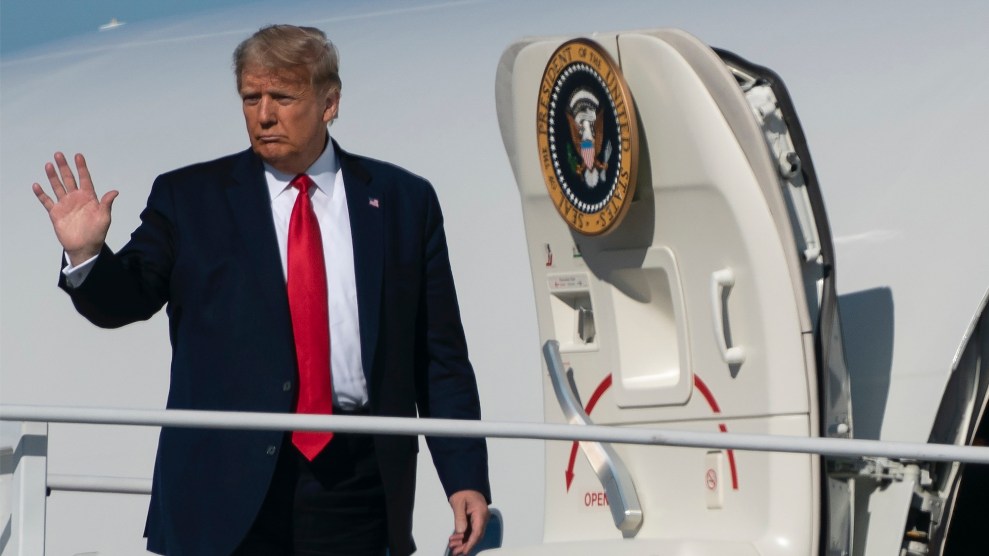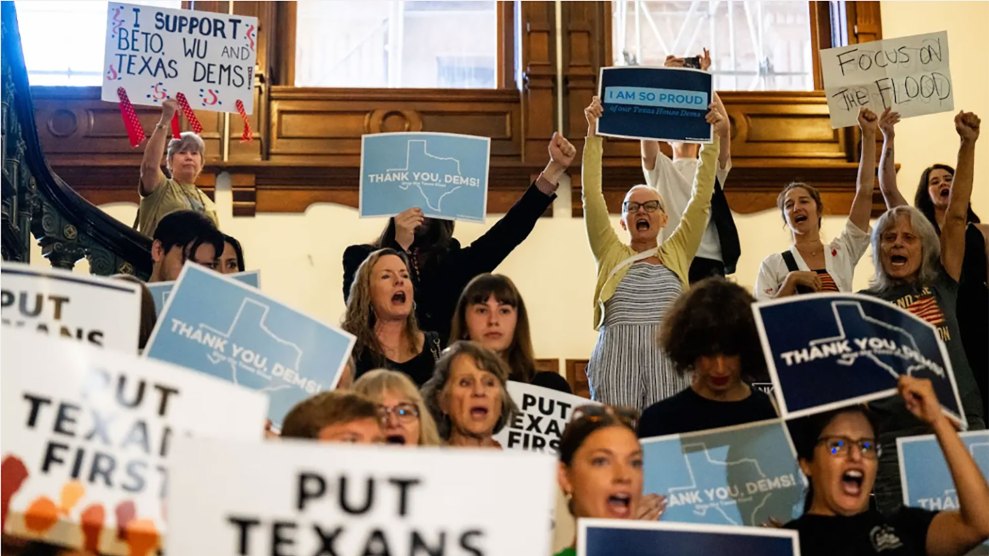
Alex Edelman/CNP via ZUMA
An important date is coming up. On November 4, the day after the election, the United States will earn a dubious distinction: It will become the only country in the world to formally exit the Paris agreement. In the historic global climate change deal, struck in 2015, 189 countries agreed on nonbinding domestic targets to keep global temperatures well below a disastrous 2 degrees Celsius.
The Paris deal marked a breakthrough in that it encouraged rapidly growing nations like China and India to take action to combat climate change alongside United States and Europe, historically the world’s largest sources of emissions. Rather than set universal emissions cuts, it allowed each nation to determine their contributions. The countries’ initial pledges were considered a starting point—the expectation was that everyone would return to the negotiating table in 2020 with more ambitious cuts to carbon pollution.
In 2017, President Trump, surprising no one, announced his intent to withdraw the United States from the agreement. There was a silver lining: Instead of inspiring a complete unraveling of the plan, his threat had the opposite effect—no country exited the agreement, and in fact 38 more countries have joined since 2017.
Yet the future stability of the Paris deal still depends heavily on whether the United States stays in. Trump allies like Brazil’s Jair Bolsonaro and Turkey’s Recep Tayyip Erdoğan have hinted they may also exit. November 2020 was supposed to be a pivotal month when countries returned to the negotiating table to evaluate their progress and make new goals. COVID-19 delayed the annual international climate meeting until 2021, but even in the chaos of the pandemic, other major economies have ramped up their climate ambitions. China recently announced its goal to be carbon neutral by 2060. India has raised its goal to install 450 gigawatts of renewable energy by 2030, double its goal it set in Paris for 175 gigawatts in 2022. And the European Union just officially adopted a net-zero carbon pollution target for 2050 as binding law.
Since his 2017 announcement, Trump has been repeating two dangerous lies about US participation in the deal: His first lie was that the agreement would come at immense cost to Americans while other major polluters would contribute nothing; his second was that the United States has already exited the accord. “The Paris Accord, I took us out because we were going to have to spend trillions of dollars and we were treated very unfairly,” Trump said in the extensive climate section of the debate.
About that: First of all, Trump didn’t actually withdraw—rather, the United States will be in the Paris deal until November 4 because of a required three-year waiting period. Second, it’s absurd to imagine that the United States, as the biggest and richest polluter somehow got shortchanged in the agreement. This isn’t the United States bending to the will of the United Nations; instead, the United States basically guided the terms of the agreement. The cost Trump is ostensibly alluding to—President Obama’s pledge of $3 billion to the Green Climate Fund for developing nations—is to help other nations cut pollution and fight climate impacts. Those investments would undoubtedly help the United States, as well: As we’ve seen this year, from hurricanes to western wildfires, the United States is not immune to experiencing climate crises at home.
“It’s clear that we should’ve been spending the last four years doing more,” says Jake Schmidt, an expert on international climate negotiations and senior advisor to the Natural Resources Defense Council Action Fund. Yet in spite of Trump’s hostility toward the Paris agreement, the United States has made some progress over the last four years. The Michael Bloomberg and Jerry Brown-led group America’s Pledge estimated that emissions reduction goals made by cities, states, and companies could cut US emissions by a third by 2030.
Still, the world is a long way off from meeting its commitments in Paris. Carbon pollution has temporarily fallen during the COVID crisis, but the economic recovery will matter more for whether the world is still on its worst-case, business-as-usual path. It would be easy for a Biden administration to rejoin the Paris deal in January, but they would have much more work to do to repair relationships and trust in American leadership. And he has even more to do on the domestic front to repair Trump’s war on climate science. Just yesterday, the New York Times reported that the Trump administration removed a chief scientist at the National Oceanic and Atmospheric Administration after he asked climate-skeptic political appointees to adhere to the agency’s scientific integrity policy.
“It’s hard when you have the world’s largest market and a major global player either sitting on the sidelines,” says Schmidt. “Or in Trump’s case, doing everything he can to pull things backward.”

















